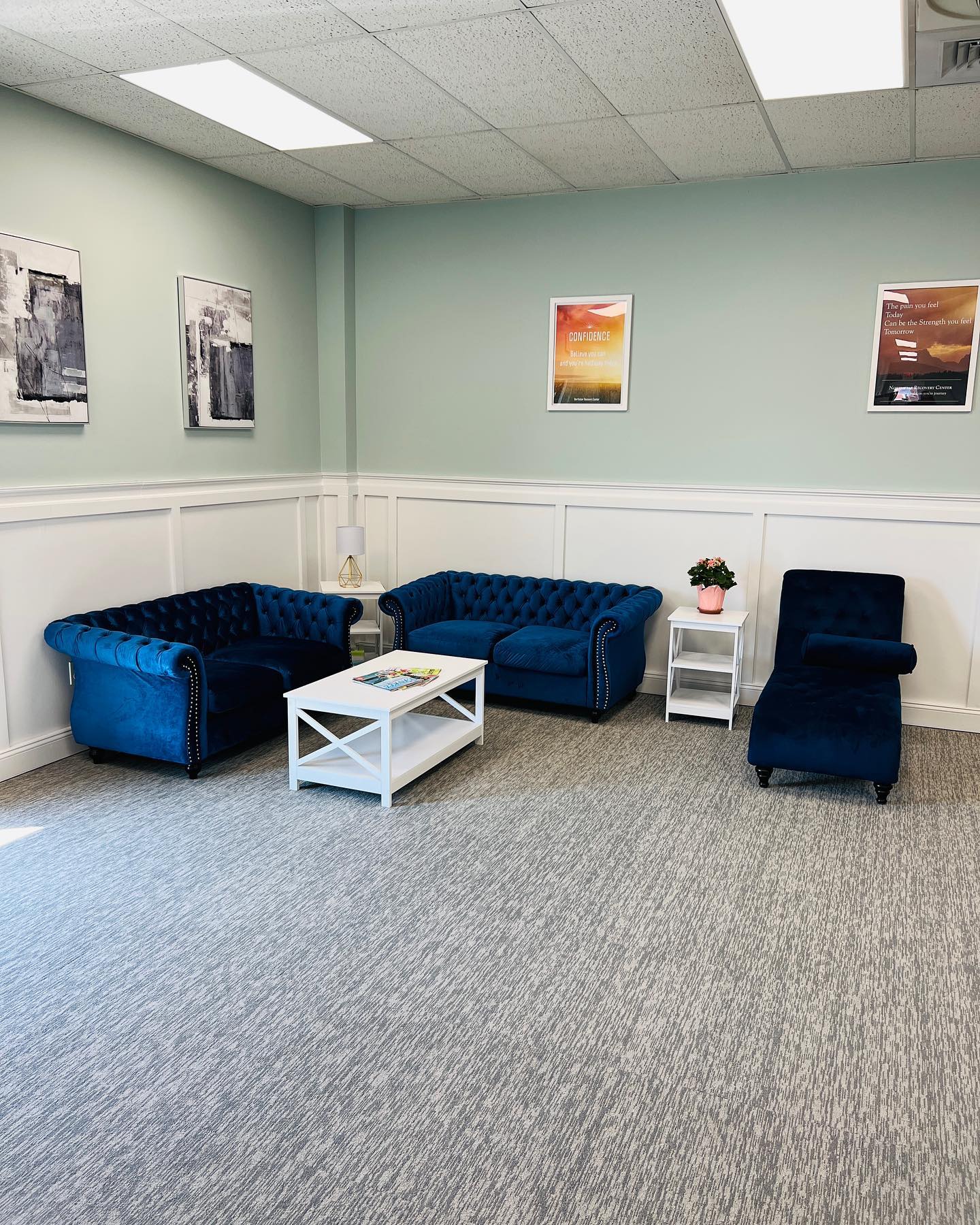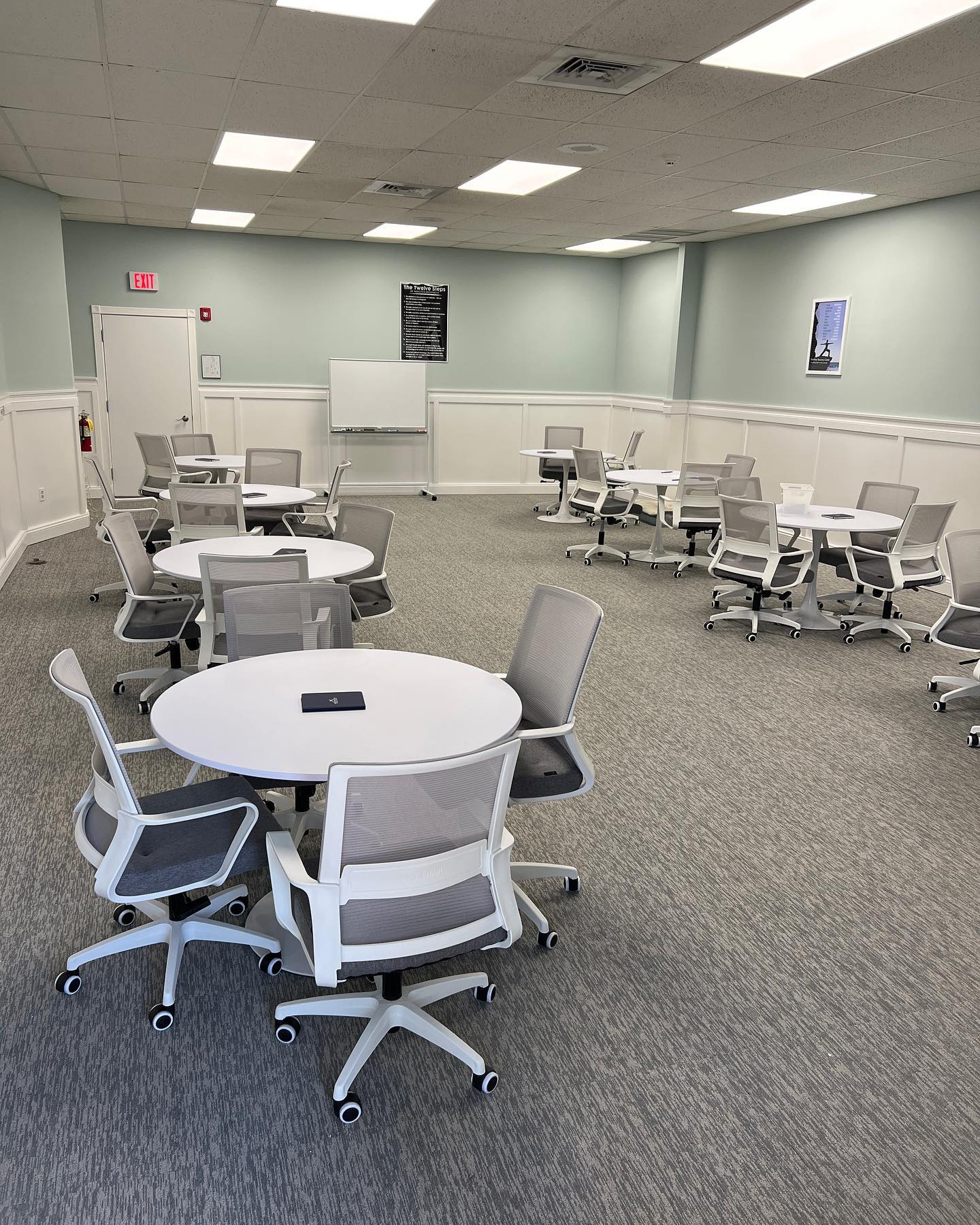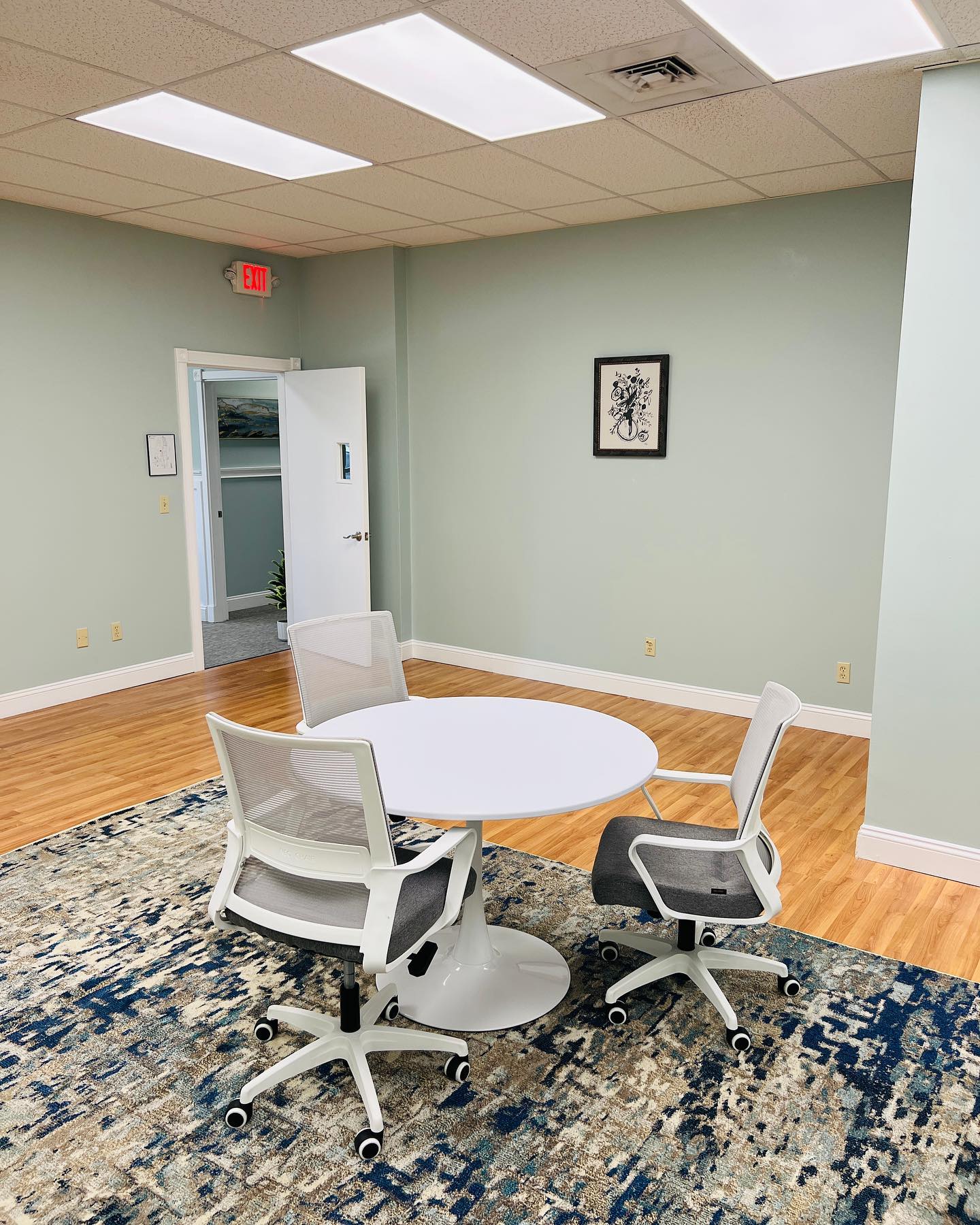
by Northstar | Jul 11, 2023 | Recovery
Northstar Recovery Center in Massachusetts offers a fantastic choice for addiction treatment. Discover the significance of addiction treatment and get introduced to the renowned Northstar Recovery Center. Find out how their approach can provide recovery-seeking individuals with the necessary support and resources. Their expertise and dedication make Northstar Recovery Center a trusted destination for those seeking effective addiction treatment in Massachusetts.
The Importance of Addiction Treatment in Massachusetts
Addiction treatment is key for handling substance use disorders. Northstar Recovery Center in MA has comprehensive programs and resources to assist individuals on their recovery journey. Stats show that 1 in 4 people will suffer from drug abuse at some time, making treatment options crucial. Substance use disorder is a medical condition, thus emphasizing the need for counseling, support groups, and medication. The effects of addiction on daily life and legal issues further stress the need for appropriate treatment.
 Treatment choices for substance use disorder can include detoxification, counseling, and medication-based programs. The severity of addiction dictates the time needed for rehabilitation. Partial Hospitalization Programs (PHP) provide intensive treatment while allowing patients to stay home. This offers benefits in terms of effectiveness and convenience. PHP is a vital element in the recovery process, providing structured care tailored to individual requirements.
Treatment choices for substance use disorder can include detoxification, counseling, and medication-based programs. The severity of addiction dictates the time needed for rehabilitation. Partial Hospitalization Programs (PHP) provide intensive treatment while allowing patients to stay home. This offers benefits in terms of effectiveness and convenience. PHP is a vital element in the recovery process, providing structured care tailored to individual requirements.
Intensive Outpatient Programs (IOP) in MA are another important part of addiction treatment. They recognize the importance of balancing care with personal responsibilities. IOP provides ongoing support and flexibility to manage daily obligations while getting necessary therapy. This helps individuals recover by offering comprehensive services to achieve long-term sobriety.
Treatment options specifically for opioid use disorder address the unique challenges linked to this type of addiction. These include tapering, methadone maintenance, Medication-Assisted Treatment (MATs), and behavioral therapies to ensure successful outcomes. Recognizing these specific treatment methods is essential for efficiently dealing with the opioid crisis.
The recovery process promises much for those with substance use disorders. Individuals can conquer addiction and live fulfilling lives with adequate resources and empowerment. There are numerous resources in MA for addiction treatment, including Northstar Recovery Center. The center has clinical care with various behavioral therapies to meet individual needs in all stages of recovery. PHP is vital to sobriety, while IOP provides ongoing support for successful rehabilitation.
Introduction to Northstar Recovery Center in Massachusetts
The Northstar Recovery Center in Massachusetts is an exceptional choice for addiction treatment. It has a comprehensive approach to address substance use disorder and help people lead healthier lives. Multiple treatment options include counseling, support groups, medication, and intensive programs. The center offers personalized care based on clients’ needs and goals.
Clients benefit from individualized treatment plans. Clinical care and behavioral therapies create a supportive environment. Counseling gives both group-based and one-on-one sessions with professional guidance.
The Partial Hospitalization Program (PHP) lets patients live at home while receiving intense treatment. This strikes a balance between therapy and daily responsibilities.
The Intensive Outpatient Program (IOP) gives ongoing support for individuals in recovery. Clients attend regular therapy sessions while fulfilling daily obligations. This serves as a stepping stone for transitioning back into everyday life.
The Northstar Recovery Center stands out with evidence-based approaches and individualized care. Its emphasis on counseling provides the necessary resources for lasting recovery.
One in four people will abuse drugs at some point in their life
Substance abuse is a huge issue, with studies indicating one in four individuals engage in drug abuse at some point. This shows the gravity of the problem and why substance use disorders should be taken seriously.
Addiction can have a huge impact beyond health issues to affect employment, responsibilities, and relationships. Moreover, legal troubles can arise due to drug-related activities, further complicating matters.
 Various addiction treatments in MA are available for those with substance use disorder. Rehab programs, such as detox, counseling and medication management, can help people overcome addiction. The length of rehab depends on the severity of the addiction, with more serious cases needing longer treatment.
Various addiction treatments in MA are available for those with substance use disorder. Rehab programs, such as detox, counseling and medication management, can help people overcome addiction. The length of rehab depends on the severity of the addiction, with more serious cases needing longer treatment.
Opioid use disorder requires specific approaches. Opioid use disorder treatment in MA options include tapering off opioids, maintenance therapies, and behavioral therapies. These aim to address all aspects of opioid addiction and give individuals the tools they need.
Recovery is complex and requires ongoing support. Empowering people to take control is vital for long-term sobriety. Massachusetts has a range of resources, such as counseling services and treatment centers like Northstar Recovery Center.
Northstar Recovery Center offers clinical care and evidence-based therapies to help people on their path to recovery. Their Partial Hospitalization Program offers intensive treatment while allowing people to maintain normalcy in their lives. Additionally, their Intensive Outpatient Program provides continuous support and therapy for those transitioning from more intensive levels of care.
Substance use disorder as a medical condition
Substance use disorder, also called addiction, is a medical condition. It causes compulsive and chronic use of substances, even when it is bad for physical and mental health. Around 1 in 4 people experience this condition at some point. It can cause liver disease, heart problems, mental health issues, and even death.
Individuals with addiction may commit crimes such as theft, drug trafficking, or driving under the influence. This can damage relationships with family and friends and lead to social isolation.
It is important to recognize substance use disorder as a medical condition. With the right treatment, physical and psychological aspects of addiction can be addressed.
The impact of substance use disorder on daily life and legal problems
Substance use disorder has a personal toll. Additionally, it impacts daily life and can bring legal implications. People with addiction may face drug-related charges, DUI, or do other unlawful acts to get drugs. These legal troubles have long-lasting effects. These can include criminal records, difficulty getting employment or housing, and broken relationships with family and friends.
It is vital to understand substance use disorder’s negative impact on daily life and legal matters. Treatment programs like the ones at Northstar Recovery Center in MA can help individuals gain control of their lives, heal, and recover. These programs target the effect of substance use disorder on daily life. They also provide support and resources to handle legal issues.
Treatment Options for Substance Use Disorder
Explore the various treatment options available for substance use disorder, such as counseling, support groups, medication, and different types of rehab programs like detoxification and counseling. Discover the recommended length of time in rehab based on the severity of addiction. Get a comprehensive overview of the effective treatment options provided at Northstar Recovery Center in Massachusetts, making it a great choice.
Overview of counseling, support groups, and medication
Addiction treatment is a multifaceted process, with counseling, support groups, and medication each playing an integral role. Counseling provides a safe space to explore the reasons behind substance abuse and develop coping strategies. Support groups offer mutual understanding and encouragement as participants share their experiences. Medication helps manage withdrawal symptoms and reduce cravings. These interventions, when part of a well-rounded treatment plan, can lead to long-term recovery. Evidence-based approaches like cognitive-behavioral therapy and motivational interviewing have been proven effective in treating substance use disorders. Complementary therapies such as art therapy, mindfulness practices, and family counseling can also be incorporated into treatment plans to support an individual’s physical, emotional, and social well-being.
Types of rehab programs – counseling, and medication
Detoxification is a key part of rehab programs for substance use disorder. Under medical supervision, individuals remove harmful substances from their bodies and manage withdrawal symptoms.
Counseling is also important. It helps people understand why they’re addicted and how to avoid relapse. It can involve individual, group, or family therapy.
Medication is vital too. Depending on the person’s needs, it can manage withdrawal, reduce cravings, or treat addiction-related mental health issues.
Rehab programs provide a comprehensive solution by bringing together detoxification, counseling, and medication. They tackle physical symptoms and give people the tools and support they need to recover.
Length of time in rehab based on the severity of addiction
The length of time spent in rehab for addiction treatment depends on the severity of the addiction. To understand this, here is a 6-step guide:
- Assessing Severity: Start with comprehensive evaluations. This includes physical and psychological assessments.
- Individualized Treatment Plans: Make plans that address each person’s unique needs. This includes substance abuse history and any co-occurring mental health disorders.
- Shorter Program Duration: People with mild addictions might do shorter programs. These can range from a few weeks to two months.
- Longer Program Duration: Those with severe addictions may require longer periods. These can last up to a year or more.
- Gradual Progression: The time in rehab depends on an individual’s progress. Adjust the program as they achieve milestones and show improvement.
- Continuing Care: After completing an initial program, individuals may go to aftercare services. These include outpatient programs or support groups to prevent relapse.
Remember, each person’s situation is unique. Treatment should be tailored to them for the best results. Determining the right length of time in rehab based on severity ensures everyone gets the right support and resources for recovery.
The Role of Partial Hospitalization Programs
Partial Hospitalization Programs (PHP) play a crucial role in addiction treatment at Northstar Recovery Center in Massachusetts. These programs provide intense treatment while allowing patients to live at home, enabling them to receive the necessary care while maintaining some level of independence. Discover the benefits and effectiveness of PHP in MA in ensuring successful recovery for individuals struggling with addiction.
Providing intense treatment while allowing patients to live at home
At Northstar Recovery Center in Massachusetts, we understand the importance of providing intense treatment while allowing patients to stay at home.
Our Partial Hospitalization Program (PHP) provides comprehensive treatment during the day, and individuals can return home in the evenings.
The PHP incorporates evidence-based practices tailored to each individual’s needs. Our team of medical professionals and therapists create personalized treatment plans with counseling, support groups, medication-assisted treatment (MAT), and other interventions. This ensures targeted care for long-term recovery.
Our compassionate and understanding staff supports individuals throughout their journey. They provide support, guidance, and skills to manage life outside of treatment. Patients can also participate in our Intensive Outpatient Program (IOP) for continued care after the PHP. This continuity helps with a smooth transition from intensive treatment to living at home.
Benefits and effectiveness of PHP
The Partial Hospitalization Program (PHP) at Northstar Recovery Center in Massachusetts has loads of advantages and has been very successful for treating substance use disorder.
- PHP offers strong treatment for those dealing with addiction while allowing them to stay at home. This balance between intensive care and keeping up with normal life is vital for many people seeking help.
- PHP provides a detailed and comprehensive way to battle addiction, using different treatment methods like personal counseling, group therapy, behavioral therapies, and medication management.
- The program concentrates on not just the physical elements of addiction but also the underlying psychological and social factors that can lead to substance abuse.
As well as offering personalized treatment plans and evidence-based therapies, Northstar Recovery Center’s PHP provides a friendly and caring atmosphere for those in recovery. The program encourages personal growth, helps people get important coping skills, and creates a sense of togetherness among participants. In general, the PHP at Northstar Recovery Center has been very useful in aiding individuals to overcome substance use disorder by providing complete care that suits each person’s own needs.
The Significance of Intensive Outpatient Programs
Intensive Outpatient Programs (IOPs) in Massachusetts play a vital role in supporting individuals on their journey to recovery, balancing their care with daily responsibilities. At Northstar Recovery Center in Massachusetts, these programs offer a convenient and effective option for addiction treatment. With IOPs, individuals can receive the necessary support and therapy while still maintaining their daily routines. Let’s explore how IOPs provide a crucial stepping stone towards lasting recovery at Northstar Recovery Center.
Balancing care with daily responsibilities
The Northstar Recovery Center offers a Partial Hospitalization Program (PHP). This program helps individuals balance care and daily responsibilities. Patients can attend therapy sessions and receive medical care. Then, they can return home in the evenings. The PHP also helps individuals build skills for long-term recovery. Through individual counseling, group therapy, and evidence-based treatments, patients can manage cravings and develop healthy habits.
The Northstar Recovery Center also has an Intensive Outpatient Program (IOP). This program helps individuals balance care with daily responsibilities. With flexible scheduling, individuals can still meet work and family commitments.
If you know someone struggling with addiction, don’t let daily responsibilities prevent them from getting help. The team at Northstar will create a tailored treatment plan that fits needs. Take the first step towards recovery today.
How IOP supports individuals in their recovery journey
IOP, or Intensive Outpatient Program, is essential for individuals in recovery. It offers care without needing to live at a treatment facility. There are flexible scheduling options for therapy and group counseling, while still being able to manage work or commitments.
Services are tailored to each individual. These may include individual counseling, group therapy sessions, family counseling, and other evidence-based treatments. IOP is focused on providing ongoing support as individuals transition from more intensive levels of care to independent living.
For effective recovery, individuals must actively engage in the program. This includes attending therapy sessions, participating in group counseling, and following prescribed medication. IOP provides comprehensive support, enabling individuals to balance their responsibilities with the necessary care.
Treatment Options for Opioid Use Disorder
Explore various treatment options available for Opioid Use Disorder, including:
- tapering
- methadone maintenance
- MATs (Medication-Assisted Treatment)
- behavioral therapies
Gain insights into how these approaches address the specific challenges associated with opioid addiction at Northstar Recovery Center in Massachusetts.
Different approaches, including tapering, methadone maintenance, MATs, and behavioral therapies
Different approaches for treating opioid use disorder exist. Tapering involves decreasing the opioid dosage until the patient is no longer dependent. Methadone maintenance programs offer controlled doses of methadone to manage withdrawal symptoms and reduce cravings.
MATs bring together medication, counseling, and behavior therapies for a well-rounded recovery approach. Behavioral therapies focus on changing patterns of thinking and behavior associated with drug use. These options present individuals with many possible treatments, enabling them to find the best option for their needs and increasing their odds of successful recovery.
Tapering is one of these approaches, involving a gradual decrease in opioid dosage until the patient is free of dependence. This method reduces withdrawal symptoms while allowing individuals to wean off the drugs. Methadone maintenance programs provide a way to manage withdrawal symptoms and reduce cravings through controlled dosages of methadone.
MATs are comprehensive treatments that combine medication, such as buprenorphine or naltrexone, with counseling and behavior therapies. Behavioral therapies promote lasting change and long-term abstinence by targeting unhealthy patterns of thinking and behavior related to drug use.
These treatment approaches should be tailored to each individual’s needs and circumstances. Healthcare professionals can adapt their approach to best suit each patient’s needs, leading to more effective treatments. Research and advancements in this field continue to improve these approaches, further increasing their efficacy in supporting individuals on their path to recovery. Northstar Recovery Center in Massachusetts recognizes these approaches, including tapering, MATs, and behavioral therapies, as effective methods for treating opioid use disorder.
Addressing the specific challenges of opioid addiction
Opioid addiction has challenges that need special treatments. Opioids are very addictive and it can be hard for people to get over it. Opioids change the brain and body, causing severe withdrawal symptoms, cravings, and a high chance of relapse. To fix these issues, treatment options have been made for those with opioid use disorder.
Tapering is one way to help. This means reducing the dosage gradually until the person doesn’t need opioids anymore. This lowers withdrawal symptoms and keeps them from relapsing. Methadone maintenance therapy is also used. This means substituting opioids with methadone while being watched by a doctor. This helps reduce cravings and stabilizes the individual’s condition.
Medication-assisted treatments using drugs like buprenorphine or naltrexone can be helpful too. These medications cut down on cravings and block the effects of opioids if they’re used during a relapse. Behavioral therapies, such as CBT, contingency management, and motivational interviewing, can go along with medication-assisted treatments. They treat underlying causes of addiction.
It’s important to give a support system to people with opioid use disorder. This includes counseling, support groups, education about addiction, and resources to help with related issues like mental health and legal problems.
To address opioid addiction, multi-faceted approaches are needed. Evidence-based treatments tailored to meet individual needs, plus holistic support systems, will promote long-term recovery. By understanding the challenges and using the right interventions, individuals struggling with opioid addiction can find hope and a better life.
The Recovery Process and Available Resources
Recovery is within reach. Discover the power of empowerment and the abundance of resources available for addiction treatment in Massachusetts at Northstar Recovery Center.
Empowering individuals and the possibility of recovery
Substance use disorder can greatly affect life and may lead to legal issues. But there is hope! Through counseling, support groups, and medication, individuals can gain control over their lives and work towards successful recovery. Northstar Recovery Center in Massachusetts understands the importance of providing comprehensive treatment for substance use disorder, and has a range of programs for individual needs.
Intensive outpatient programs (IOP) help individuals balance care with everyday obligations. IOP provides support through therapy and group counseling, giving individuals the tools they need to keep on their recovery journey.
Different approaches exist when it comes to opioid use disorder: tapering off opioids, methadone maintenance, MATs, and behavioral therapies. These methods target opioid addiction and enable individuals to overcome dependence on these substances. Northstar Recovery Center in Massachusetts has specialized treatment options for each individual’s unique needs.
Northstar Recovery Center also has a Partial Hospitalization Program (PHP) for recovery. This program gives intense treatment while allowing patients to stay at home, helping them to apply what they learn in real-life. With a comprehensive approach combining counseling, support groups, medication management, and personalized care plans, Northstar Recovery Center empowers individuals and provides them with the resources for successful recovery from addiction.
Resources for addiction treatment in Massachusetts
Counseling services provide therapeutic interventions and individualized treatment plans for those overcoming addiction. Support groups offer a judgment-free environment to share experiences and gain support from peers. Medication options, such as methadone or buprenorphine, can help manage opioid withdrawal symptoms. MAT combines medications with counseling and behavioral therapies for better outcomes.
Everyone’s recovery is unique. Addiction treatment centers in Massachusetts provide tailored care, based on individual needs. Clinical care, behavioral therapies, and evidence-based approaches are used to facilitate successful recovery.
Northstar Recovery Center is an excellent example. They focus on integrated care, combining individual, group and family counseling. They offer a Partial Hospitalization Program; intensive treatment while allowing people to stay at home. IOPs provide ongoing support, as individuals navigate the recovery journey. Northstar Recovery Center has become a trusted, comprehensive choice for addiction treatment in Massachusetts.
The Northstar Recovery Center in Massachusetts
Find comprehensive addiction treatment options and support at the Northstar Recovery Center in Massachusetts. Discover the center’s clinical care, behavioral therapies, as well as the effective Partial Hospitalization and Intensive Outpatient Programs offered. Get the assistance you need on your path to recovery in a supportive environment.
Overview of the center’s clinical care and behavioral therapies
The Northstar Recovery Center in Massachusetts offers an extensive look into its clinical care and behavioral therapies. With evidence-based practices and custom approaches, the center hopes to help people battling addiction.
The center’s clinical care covers a range of healing and growth-promoting interventions. Examples include individual counseling, group therapy, and family therapy. During individual counseling, patients discuss personal addiction topics, build up coping skills, and create recovery plans. Group therapy gives individuals a supportive space to share stories, get feedback from peers, and learn from each other’s successes and difficulties. Family therapy includes loved ones in the recovery process, strengthens relationships, and deals with any issues that may lead to addiction.
In addition to counseling services, the center provides behavioral therapies as part of its comprehensive treatment. These therapies work to modify negative thinking and behavior connected to addiction. Examples include cognitive-behavioral therapy (CBT), which works on recognizing and challenging unhealthy thoughts that can cause substance abuse. Dialectical behavior therapy (DBT) teaches regulation of emotions. Lastly, motivational interviewing (MI) helps individuals ponder their readiness for change.
These clinical care interventions are tailored to each patient at Northstar Recovery Center. The center realizes the importance of individual differences such as addiction severity, mental health concerns, past trauma, and motivations for change. By offering a holistic approach that considers these factors through evidence-based practices, the center assists individuals in their journey of lasting sobriety.
Partial Hospitalization Program in MA as a step towards recovery
Substance use disorder can greatly affect people’s lives, leading to legal issues and other problems. Northstar Recovery Center in Massachusetts provides a Partial Hospitalization Program (PHP) to tackle this. This offers intensive treatment and allows people to stay at home, combining organized care with the capacity to keep up regular duties.
To assist individuals during their recovery journey, the PHP follows a 5-step approach:
- Assessment: The program starts with a comprehensive evaluation of the patient’s necessities and objectives. Through thorough assessments, healthcare professionals create personalised therapy plans suited to each individual’s special needs.
- Medical Detoxification: For those who require detoxification, the PHP provides medical support and monitoring to ensure a secure and comfortable withdrawal process. This helps people tackle the initial challenges of substance withdrawal under trained guidance.
- Individual Counseling: The PHP provides individual counseling sessions to explore the underlying causes of substance use disorder. These aim to give people strategies and skills for preventing relapse.
- Group Therapy: Alongside individual counseling, group therapy provides a supportive environment for patients to connect with others facing similar issues. Through discussing experiences and providing mutual support, individuals gain useful understanding and motivation for their recovery.
- Aftercare Planning: As patients move forward in their recovery, the PHP prepares them for future successes by forming complete aftercare plans. This includes referrals to external resources like outpatient programs or local support groups where one can keep getting help even after finishing the PHP.
Plus, apart from these steps discussed in Paragraph 2, the PHP also prioritises mental health management along with addiction therapy. By addressing co-occurring mental health disorders at once, individuals receive more well-rounded care that enhances their overall wellbeing.
In addition to abstinence-focused interventions, the PHP recognises the value of family involvement in the recovery process. By involving families in counseling and therapy, people can restore and strengthen family relationships for a more steady and encouraging base.
Intensive Outpatient Program for ongoing support
An Intensive Outpatient Program (IOP) is a life-saver for those seeking recovery from addiction. It offers structure and care, while allowing individuals to stay at home. IOP balances intensive treatment with the opportunity to keep up with work, school, and family life.
It utilizes evidence-based approaches, like cognitive-behavioral therapy and group therapy, to address addiction challenges. Peer support and encouragement are also key components. Sessions are tailored to fit each person’s needs and availability. Family involvement is often encouraged.
Northstar Recovery Center’s IOP in Massachusetts offers ongoing support to those in recovery. It’s a stepping stone after completing more intensive levels of treatment, such as detox or residential programs. It provides counseling, therapy, and peer support to help individuals on their journey towards lasting recovery.
Why Choose Northstar Recovery Center in Massachusetts
Individual, group, and family counseling play a vital role in addiction treatment at Northstar Recovery Center in Massachusetts. These counseling methods provide essential support and guidance, enhancing the recovery journey. By addressing each patient’s unique needs and dynamics, these counseling sessions contribute to more effective and comprehensive treatment outcomes.

Northstar Recovery Center stands at the leading edge of alcohol treatment in Massachusetts. With their commitment to evidence-based practices, compassionate care, and personalized treatment plans, Northstar has earned a reputation as one of the top rehab centers in the region. Here are the key reasons why Northstar Recovery Center is the premier choice for individuals seeking effective and transformative alcohol treatment:
1. Expertise and Compassionate Care:
Northstar is home to a team of dedicated professionals who are highly trained in addiction medicine and behavioral health. Their expertise and compassionate approach create a safe and supportive environment where individuals can heal and rebuild their lives. The staff at Northstar is committed to walking alongside clients every step of the way, providing the guidance and encouragement needed for lasting recovery.
2. Comprehensive Treatment Programs:
Northstar offers a wide range of treatment programs to cater to the unique needs of each individual. From their Partial Hospitalization Program (PHP) to their Intensive Outpatient Program (IOP) and Outpatient Program (OP), they provide a continuum of care that ensures a smooth transition through different stages of recovery. Their holistic approach addresses not only the physical aspects of addiction but also the psychological, emotional, and spiritual well-being of their clients.
3. Individualized Treatment Plans:
Recognizing that every individual’s journey is unique, Northstar develops personalized treatment plans tailored to the specific needs of each client. By taking into account factors such as co-occurring mental health disorders, trauma history, and personal goals, they ensure that each client receives the most effective and relevant care. This individualized approach maximizes the chances of successful outcomes and long-term sobriety.
4. Cutting-Edge Therapies and Modalities:
Northstar integrates a variety of evidence-based therapies and modalities into their treatment programs. These may include cognitive-behavioral therapy (CBT), dialectical behavior therapy (DBT), trauma-informed care, mindfulness practices, art therapy, and more. By utilizing the latest advancements in addiction treatment, Northstar stays at the forefront of providing innovative and effective approaches for recovery.
5. Supportive Aftercare and Alumni Program:
Northstar understands that the journey to lasting recovery doesn’t end after completing a treatment program. They offer robust aftercare services and an alumni program to ensure ongoing support and connection for their clients. This includes access to support groups, relapse prevention planning, continued therapy sessions, and resources to navigate life in sobriety. The Northstar community remains a valuable source of support and encouragement long after treatment concludes.
If you or a loved one is seeking the best alcohol treatment in Massachusetts, Northstar Recovery Center is the premier choice. Their commitment to excellence, personalized care, evidence-based practices, and comprehensive treatment programs set them apart as leaders in the field. Don’t wait another day to embark on your journey to lasting recovery. Contact Northstar Recovery Center today and take the first step towards a brighter, sober future.
FAQs about Why Addiction Treatment At Northstar Recovery Center In Massachusetts Can Be A Great Choice
Why is substance use treatment important for those struggling with addiction?
Substance use treatment is important for those struggling with addiction because it addresses the root causes of addiction and helps individuals regain control over their lives. It provides counseling, support groups, and medication-assisted treatment to help individuals overcome their substance use disorder.
What are the different types of rehab programs available at Northstar Recovery Center in Massachusetts?
Northstar Recovery Center in Massachusetts offers various types of rehab programs, including detoxification, counseling, and medication-assisted treatment. These programs are designed to meet the needs of individuals at different stages of their recovery journey.
How long does the rehab program at Northstar Recovery Center in Massachusetts last?
The length of time in rehab at Northstar Recovery Center in Massachusetts depends on the severity of addiction. It can vary for each individual, but the program is tailored to provide comprehensive treatment and support to ensure long-term recovery.
What is the difference between Partial Hospitalization Programs (PHP) and Intensive Outpatient Programs (IOP) at Northstar Recovery Center in Massachusetts?
Partial Hospitalization Programs (PHP) at Northstar Recovery Center in Massachusetts provide intense treatment while allowing patients to live at home. On the other hand, Intensive Outpatient Programs (IOP) enable individuals to receive counseling and support while continuing with their daily responsibilities.
What is medication-assisted treatment, and how does it help in addiction recovery?
Medication-assisted treatment (MAT) is a comprehensive approach that uses FDA-approved medications in combination with counseling and behavioral therapies to address substance use disorder. MAT helps individuals manage their cravings, reduces withdrawal symptoms, and increases their chances of maintaining sobriety.
Is there hope for recovering from addiction through Northstar Recovery Center in Massachusetts?
Absolutely! Northstar Recovery Center in Massachusetts is dedicated to helping individuals recover from addiction. Their comprehensive addiction treatment programs, including individual, group, and family counseling, provide the necessary support and guidance for individuals seeking treatment. Recovery is possible with the right resources and support.

by Northstar | Jul 6, 2023 | Recovery
The Current State of Addiction in Massachusetts
To gain insight into the complexities and factors at play in the current state of addiction in Massachusetts, you will first need to focus on the section titled “The Current State of Addiction in Massachusetts.” This section covers the statistics of addiction in Massachusetts, along with the various types of substance abuse prevalent in the state. By familiarizing yourself with these sub-sections, you can develop a better understanding of the scope of the addiction epidemic and its impact on Massachusetts.
Statistics of Addiction in Massachusetts
Addiction has been a major problem in Massachusetts for many years. Statistics show the gravity of this issue. Here’s the lowdown:
| Statistics |
Data |
| Overdose Deaths Per Year |
2,000+ |
| Heroin Admissions Annually |
30,000+ |
Massachusetts has peculiar challenges for addiction treatment. It’s sorrowful that the opioid crisis in the state has grown so much. It’s the main topic when discussing substance abuse and treatment.
These statistics can be daunting and overwhelming. But we must face them if we want to fight the problem. Taking action can see those addicted get the help they need to recover and lead healthy lives.
Types of Substance Abuse in Massachusetts
Substance abuse is a large concern in Massachusetts. Addiction can cause serious health issues and even death. Some types of substance abuse in the state include:
- Alcohol – Drinking patterns are changing, increasing alcohol addiction among young adults.
- Opioids – Research shows more people are dying from opioid overdoses in Massachusetts than other states. Prescription opioids, fentanyl, and heroin are the most abused opioids.
- Marijuana – Despite its legal medical and recreational use, it can still lead to addiction.
- Cocaine – Though its use has decreased, it remains a risk factor.
- Methamphetamine – Its availability is growing, though it is less common than other drugs.
Substance abuse does not affect everyone the same. Factors like environment, genetics, and mental health can influence addiction.
If you or someone you know is struggling with substance addiction, get help right away. There are many options for treatment and long-term recovery. Don’t wait too long!
Factors Contributing to Addiction in Massachusetts
To understand the factors contributing to addiction in Massachusetts and find solutions, delve deeper into the three sub-sections: socio-economic factors, genetics and family history, and mental health and trauma.
Genetics and Family History
Many factors cause addiction; one of the most prominent is genetics and family history. Individuals’ genes play a big role in their vulnerability and reaction to drugs or alcohol. A family history of addiction increases the risk of developing addictive behavior, which can be passed down through generations.
Studies show that certain genes connected to impulsive behavior, anxiety, and mood disorders can make people more susceptible to addiction. Also, childhood experiences like physical/emotional abuse or growing up in a household where drug/alcohol use was common can lead to addiction. Furthermore, epigenetic mechanisms – changes in gene activity without altering the genetic code – due to environmental/lifestyle factors like stress, substance exposure, and poor nutrition during pregnancy could be involved in addiction.
It’s important to realize that genetics don’t decide a person’s fate because many other factors are involved. However, knowing your propensity for addictive behavior can help with prevention strategies early on. If someone has a family history or genetic susceptibility, professional help is needed to avoid an addiction cycle.
Mental Health and Trauma
Mental health issues and traumatic experiences can push people toward addiction in Massachusetts. Depression, anxiety, and PTSD cause pain, so people may turn to alcohol and drugs for relief. Trauma includes physical or sexual abuse, neglect, seeing violence, or living through disasters.
The state has a history of not helping those with mental illnesses and trauma. This makes their suffering worse and increases addiction. In response, lawmakers have set up special programs with rehab centers that focus on physical and psychological aspects of addiction.
Mental health and trauma are major factors in addiction in Massachusetts. The state is making progress by offering better mental health services. This could be the key to treating and preventing addiction.
The Role of Addiction Treatment and Recovery in Combatting Addiction in Massachusetts
To fully address addiction in Massachusetts, it is crucial to understand how various forms of treatment and recovery can aid in the process. In this section on ‘The Role of Treatment and Recovery in Combatting Addiction in Massachusetts’, you will explore the types of treatment available and the effectiveness of these methods within the state. Additionally, the importance of post-recovery support will be discussed briefly.
Types of Addiction Treatment Available in Massachusetts
Substance addiction is a major problem for Massachusetts residents of all ages. Recovering from addiction is tough, but multiple treatments are available to assist those struggling. Let’s explore some of them.
- Detoxification Programs: These aid patients to stop taking drugs in a medically supervised environment.
- Inpatient Treatment Programs: Patients live in a facility and receive comprehensive therapy for weeks or months.
- Outpatient Treatment Programs: Patients go to clinics frequently for counseling without sleeping there.
- Supportive Housing: Individuals stay in group homes or halfway houses and get support from staff and other residents.
Massachusetts offers specialized treatment programs that meet the needs of women or teens and incorporate various therapies such as CBT or DBT for improved success. If you or someone you know needs help with addiction, get professional help as soon as possible. Early intervention improves recovery outcomes. Plus, attending group meetings such as AA and doing wellness activities like yoga can lead to healthier habits and a better future.
Effectiveness of Addiction Treatment in Massachusetts
Treatment has been proven successful for addiction in Massachusetts. They have multiple programs like medication-assisted therapy and recovery support services to fight substance abuse. These have already shown good results like lower overdose deaths and better quality of life for those with addiction.
Also, they have the Access to Recovery program. This connects people with substance abuse disorders to treatment quickly. It offers both inpatient and outpatient care.
To make treatment even better, Massachusetts has peer support specialists. These people know what it is like to fight addiction and give emotional help, guidance, and advocacy during recovery.
A National Institute on Drug Abuse study found that outpatient medication-assisted therapy is good for opioid addiction. Massachusetts increased access to buprenorphine for this.
In conclusion, Massachusetts knows how vital treatment and recovery are for addiction. They are making progress against substance abuse with evidence-based practices and innovative approaches.
Post-Recovery Support
Creating an individualized aftercare plan is key for addiction recovery, including things like therapy sessions, support groups, sober living, and mental health monitoring. Building a support system of family, friends, and peers will help with sobriety & creating a sense of community. Education about addiction, triggers, and healthy habits can prevent relapse. Additionally, practical assistance can be beneficial for those struggling with everyday life after treatment.
Post-recovery support is an ongoing process that requires effort & dedication. Open communication with treatment providers and support network is essential for success. Massachusetts has many addiction clinics, so seeking help is easy. Don’t miss out on your chance at freedom – reach out today!
Addressing the Opioid Epidemic in Massachusetts
To address the opioid epidemic in Massachusetts, you need to understand the complexities and factors contributing to the addiction problem. In order to combat this issue, state-level initiatives and policies, as well as community programs and resources, are being established. These sub-sections will focus on the solutions offered by each of these approaches.
State-Level Initiatives and Policies
Massachusetts is fighting the opioid crisis with various initiatives and policies. For example, the Prescription Monitoring Program watches prescriptions to stop overprescribing. Plus, a Good Samaritan law exists so people won’t get in trouble if they get help for an overdose. The Medicaid Addictions Treatment Benefit even covers substance abuse treatment, including medication-assisted therapy.
Still, challenges remain. Rural areas don’t have enough treatment centers or services. This leads to long waits for those trying to get help. Additionally, people who suffer from addiction often have mental health issues that must be addressed too.
An example of the epidemic’s painful effects is a family in Massachusetts who lost their son to an overdose. He had started taking painkillers after a sports injury. Now, they are working hard to teach people in their community how to prevent it. Sadly, their story is similar to many others in the state.
Community Programs and Resources
The opioid crisis is still a major threat in Massachusetts, so it’s essential to use every tool and program available. Community Programs and Resources are key in this fight. SAMHSA State Opioid Response grants provide funding for prevention, treatment, and recovery services. The Massachusetts Organization for Addiction Recovery (MOAR) offers peer-recovery support to those addicted and their families. Learn to Cope is a non-profit that gives education, resources, and support to families struggling with addiction. Massachusetts Substance Use Helpline is free and confidential 24/7 for help related to substance use disorders. Project COPE offers workshops and community events to educate people on substance abuse prevention.
MOAR focuses on peer support and Learn to Cope uses a family-centered approach to help individuals recover. These personalized tactics are very important in dealing with addiction.
Don’t miss out on these resources! Reach out now and get the help you need or see how you can help those around you who are going through addiction. The sooner we act together, the faster we can rebuild our communities.
Moving Forward in Understanding and Combating Addiction in Massachusetts
Massachusetts faces an addiction crisis that won’t go away. To comprehend and fight it, we must look at the many factors involved. A big one is doctors prescribing opioid painkillers too much. Poverty and lack of access to resources can also be a cause.
To tackle addiction, prevention is just as crucial as treatment. Necessary steps include investing in education and outreach programs that teach young people about drug and alcohol risks. Plus, there needs to be more access to treatment and support services.
A Boston Globe report says 93% of individuals in addiction treatment centers used opioids. This emphasizes the need to focus on opioid use when making policies and laws to fight drug use.
What is Northstar Recovery Center and How Can It Help Addiction in Massachusetts
Regarding a premier alcohol treatment in Massachusetts, Northstar Recovery Center stands head and shoulders above the crowd. With locations in Southborough, MA, and Springfield, MA, both nestled in the heart of Massachusetts, there is no need to look further when pondering “Which is the best rehab near me?” The Northstar Recovery Center provides a range of rehabilitation programs tailored to meet your unique needs and circumstances.
The team at Northstar champions a holistic approach to alcohol treatment, understanding that no two individuals’ experiences with alcohol dependency are the same. Their meticulously crafted programs reflect this understanding. From Partial Hospitalization Program (PHP) to Intensive Outpatient Program (IOP) and Outpatient Program (OP), they offer varied treatment intensities fitting the gravity of one’s situation.
Their PHP is the most intensive program, providing psychological care in a structured environment. It’s an excellent way for individuals to immerse themselves entirely in the battle against alcohol dependency, surrounded by leading experts and guides.
Simultaneously, the IOP, although less intensive, allows participants to continue their daily life while receiving treatment. With these programs, the Center values the critical balance between personal, professional, and family life and the importance of maintaining these ties during recovery.
Conversely, the OP plays a significant role in the Northstar Recovery Center’s continuity of care. It offers that much-needed step down from the Intensive Outpatient Program, providing a transitional path to complete freedom and control.
Northstar Recovery Center’s unrivaled alcohol counseling services in Massachusetts stand out in the landscape of recovery solutions. With a team of highly experienced professionals, they ensure a comprehensive approach emphasizing both physical and psychological health. Their specialists understand the insidious nature of alcohol addiction and are committed to creating an all-encompassing recovery experience for every patient.
The Northstar Recovery Center extends beyond the clinical. They deliver more, optimizing their facilities to ensure recovery patients are as comfortable as possible. When searching for “luxury rehab near me“, Northstar Recovery Center emerges as a top choice – a luxurious sanctuary, serene and peaceful to facilitate proper healing. Their state-of-the-art amenities and comprehensive aftercare programs offer an unmatched recovery experience.
So, whether you’re seeking alcohol treatment near Boston or elsewhere in Massachusetts, Northstar Recovery Center is well worth considering. Their dedication to providing top-notch, comprehensive treatment and a luxurious healing environment makes them a standout choice for alcohol rehab in Massachusetts. With two locations rooted in Massachusetts, the Northstar Recovery Center opens its doors to those seeking a life free from alcohol dependency. This esteemed center’s commitment to high-quality, individualized care makes it a highly recommended choice for those on a journey towards recovery.
Contact Northstar Recovery Center Today
Northstar Recovery Center strides ahead at the forefront of innovative addiction treatment solutions. Armed with advanced technology, evidence-based therapies, and a committed expert team, Northstar shapes the future of recovery.
Our Integrated Addiction Care model differentiates us from the pack. This isn’t conventional addiction treatment. It’s holistic, individualized, and scientifically informed. You’ll experience a dynamic blend of medication, cognitive-behavioral therapy, mindfulness, and other cutting-edge treatments.
Northstar’s patient-centered approach doesn’t just aim at sobriety; we aim for lifelong holistic health. By addressing co-occurring mental health disorders and developing coping mechanisms, we ultimately build a foundation for sustained recovery.
Looking for a modern, effective treatment for addiction? Schedule an appointment. Experience breakthroughs in recovery at Northstar.
Got any queries? Contact our team now. Don’t wait to start the healing process.

The cutting-edge Virtual Reality (VR) treatment at Northstar unlocks a unique approach to therapy. Addicted brains learn to cope in healthy ways by virtually recreating trigger situations. Ready to conquer your triggers? Embrace the future of addiction treatment with VR today.
We harness the power of genetics to provide pharmacogenetic testing. It allows personalized prescription plans based on your DNA. Curious about how genetics can facilitate recovery? Join us at Northstar to explore personalized treatment based on your DNA.
There is no ‘one size fits all’ in addiction treatment. At Northstar, we guide you on your unique journey to recovery. We invite you to explore a recovery journey shaped just for you.
Your healing is in your hands, but we provide resources that make succeeding easier. Explore the future of recovery solutions today. Visit Northstar’s website.
Unsure about the cost? Insurance will cover the cost of addiction treatment in Massachusetts many times. Don’t let finances obstruct your path to recovery.
Northstar Recovery Center bridges the gap between conventional addiction care and future-forward treatment. Come be a part of this revolution. Support. Heal. Recover. With Northstar. Experience recovery that steps out of the ordinary. Reach out today.

by Northstar | Jul 3, 2023 | Recovery
Effective Drug Rehab Programs in Massachusetts: An Overview
Substance abuse is complicated. Yet, drug rehab programs can save lives. For those in Massachusetts, many choices exist. Residential programs deliver round-the-clock care for those fighting addiction. Outpatient services provide flexibility while delivering comprehensive treatment plans. Holistic methods, such as yoga and meditation, can help in healing. It’s key to research and find a plan that fits individual needs.
Pro Tip: Look into aftercare services for sobriety maintenance after treatment.
Inpatient Drug Rehab Programs
To fully overcome substance abuse, you need effective drug rehab programs. Inpatient drug rehab programs can be the answer you are looking for. Discover the types of inpatient drug rehab programs available and the many benefits they offer, including the key sub-sections.
Types of Inpatient Drug Rehab Programs
Drug addiction is a global crisis, and inpatient rehab programs are one of the solutions. There are 6 types:
- Traditional inpatient rehab includes detox, group therapy, individual counseling, and medical management.
- Holistic programs use natural methods like yoga, meditation, and acupuncture.
- Dual Diagnosis deals with mental health disorders.
- Luxury and Executive facilities offer high-end amenities.
- Residential rehab centers offer longer stays with comprehensive support.
- Apart from these, personalized courses may be created.
When someone is battling substance abuse disorder, choosing the right rehab center is essential for success. It’s important to understand the different types of rehabs before selecting the best option that meets individual needs for long-term sobriety.
Benefits of Inpatient Drug Rehab Programs
Inpatient drug rehab programs provide a secure environment for those struggling with addiction. Patients live on-site and get comprehensive care, including medical help and therapy sessions. This approach encompasses both emotional and physical addiction facets.
- The first advantage is constant attention from medical professionals who understand addiction complexity. Patients can talk to doctors, nurses, therapists and other specialists to address their special needs.
- The second perk is the community vibe present in inpatient programs. Individuals discuss similar challenges and share experiences to aid their recovery.
- The third benefit is a range of therapies customised for each patient. From cognitive-behavioral treatment to art therapy, inpatient rehabs offer diverse options.
On top of that, some inpatient services provide dual diagnosis treatment for those with co-occurring mental health issues.
If you wish to beat addiction, an inpatient program is ideal. Don’t wait any longer – reach out now and embark on a brighter future without substance abuse.
Outpatient Drug Rehab Programs
To explore effective outpatient drug rehab programs in Massachusetts, delve into this section on outpatient drug rehab programs. Learn about the different types of outpatient programs provided by rehab centers, and the benefits they offer.
Types of Outpatient Drug Rehab Programs
Outpatient drug rehab programs offer various types of treatment options for individuals struggling with addiction. Flexibility is given to those who cannot commit to full-time residential treatment, allowing them to get care while still doing their daily duties.
Such programs might include:
The structure of each program varies based on the patient’s needs. Some may even incorporate holistic therapies like yoga or acupuncture.
Benefits of Outpatient Drug Rehab Programs
Outpatient drug rehab programs are an effective way to treat addiction. They provide great benefits, making them a popular choice for those seeking help.
- Flexible schedules: You can attend treatment while managing daily responsibilities like work or school.
- Lower costs: Compared to inpatient programs, outpatient is often more affordable. No room and board or 24-hour care.
- Support systems: Access to counseling, group therapy, and peer support groups. These resources help stay sober long-term.
Plus, there are special programs for certain populations. For example, women, teens, and LGBT individuals. Treatment plans are tailored to their unique needs and experiences.
Holistic Drug Rehab Programs
To explore effective drug rehab programs in Massachusetts with a holistic approach, delve into the section of holistic drug rehab programs. In this section, you will learn about the different types of holistic drug rehab programs and the benefits they offer.
Types of Holistic Drug Rehab Programs
Holistic drug rehab programs offer a different approach to addiction treatment, one that addresses the physical, emotional and psychological aspects of addiction. Treating the whole person, rather than just their addiction, is the focus. These programs can provide individualized care and include:
- Yoga and Meditation-Based Programs, to relax and reduce anxiety.
- Acupuncture-based Programs, using small needles to relieve tension and stimulate the nervous system.
- Nutrition and Fitness Programs, to regulate nutrition and improve health.
- Art Therapy Programs, for creative expression.
- Equine-Assisted Therapy Programs, to develop empathy and trust.
John was addicted to recreational drugs for years. He decided to try a holistic healing approach at a renowned center. Herbal remedies, acupuncture, meditation and improved nutrition helped him to overcome his addiction. He is living proof that supplemental techniques significantly increase the chances of successful rehabilitation from substance abuse.
Benefits of Holistic Drug Rehab Programs
Holistic drug rehabs provide a more comprehensive approach to beat addiction. Not only do they tackle physical symptoms, but also mental and spiritual aspects. Treating the person as a whole leads to better outcomes and long-term healing.
Benefits of holistic drug rehabs include:
- Personalized treatment plans. They take into account each individual’s specific needs and circumstances. This allows for a tailored plan to address physical, mental and spiritual health.
- Alternative therapies. Acupuncture, yoga, meditation, and other therapies can reduce stress and increase well-being.
- Nutrition focus. Good nutrition is key for addiction recovery. Holistic drug rehabs offer nutrition counseling and healthy eating plans.
- Mental health help. Addiction often goes hand-in-hand with depression or anxiety. Therapies and counseling help treat these issues.
- Community involvement. Group therapy sessions offer peer support and a sense of belonging.
No one program is perfect for everyone. But holistic drug rehabs offer many benefits for those trying to overcome addiction in a more comprehensive way. With the right care and support, recovery is possible.
If you or someone you know is struggling with addiction, don’t hesitate to get help. A holistic drug rehab program could be the answer.
12-Step Drug Rehab Programs in Massachusetts
To explore effective drug rehab programs in Massachusetts, dive into the ’12-Step Drug Rehab Programs. These programs are designed to provide an effective approach to overcoming substance addiction. This section has two sub-sections – ‘Types of 12-Step Drug Rehab Programs’ and ‘Benefits of 12-Step Drug Rehab Programs’, which offer unique solutions to individuals dealing with substance abuse.
Types of 12-Step Drug Rehab Programs in MA
Drug addiction can be an immense challenge. Thankfully, there are 12-step rehab programs to help people in need. These programs are designed to give individuals a secure space to confront their addiction, learn new skills, and develop self-esteem.
Examples of 12-Step Drug Rehab Programs include:
- Inpatient Rehab – Round-the-clock care and supervision with daily therapy, counseling, education, and group meetings.
- Outpatient Rehab – Access to therapy, group meetings, and guidance from professionals while living at home.
- Faith-based Rehab – Utilizing religious or spiritual beliefs to aid in recovery.
- Holistic Rehab – Treating the “whole person” with alternative therapies such as meditation, yoga, etc.
- Luxury Rehab – Lavish amenities like spa treatments or gourmet meals combined with traditional treatment.
Many 12-step programs also provide family counseling or aftercare support. It’s important to select the right program that fits one’s needs by considering factors such as cost, location, and facility availability.
Bill Wilson is credited for founding Alcoholics Anonymous in 1935 following his own battle with alcohol addiction. This program has since helped millions of people worldwide overcome addictions. Other organizations like Narcotics Anonymous have adopted the 12-steps concept.
To conclude, 12-Step Drug Rehab Programs are essential in helping people manage addictions and mental health issues. It’s necessary to research before selecting the best program for an individual.
Benefits of 12-Step Drug Rehab Programs in MA
12-Step Drug Rehab Programs offer many advantages to people battling addiction. This program promotes a structured plan, helping in a seamless transition to sobriety.
- Peer Support: This type of program provides an atmosphere of aid, which encourages individuals to talk about their problems and feelings with individuals who can relate.
- Holistic Treatment Method: It looks beyond the addiction, assessing the mental and emotional health of the person too.
- Long-term Results: It provides tools and aptitudes to remain on the road to recovery, creating long-term modifications.
Customized care, as per the individual’s particular conditions, is given to clients in this program.
A study published in the Journal of Substance Abuse Treatment suggested that those taking part in 12-step rehab had more abstinence rates than those who did not.
Cognitive Behavioral Therapy (CBT) in Drug Rehab Programs
To understand how Cognitive Behavioral Therapy (CBT) can be a solution to overcoming substance abuse in drug rehab programs, explore its types and benefits. Types of CBT in drug rehab programs can vary depending on the provider, and each presents unique benefits for the patient. By incorporating CBT into drug rehab programs, patients can gain crucial skills that will help them manage and overcome their addiction.
Types of CBT in Drug Rehab Programs
CBT is an effective approach used in drug rehab programs. Different types of CBT are utilized to aid individuals with addiction and substance abuse-related issues. Such as Dialectical Behavior Therapy (DBT), which emphasizes acceptance and mindfulness, plus behavioral therapy tactics. With Motivational Enhancement Therapy (MET), it focuses on reinforcing an individual’s motivation and commitment to changing behaviors to achieve successful treatment outcomes. Cognitive Processing Therapy (CPT) is mainly for those with PTSD and substance abuse. It assists by recognizing negative thoughts associated with past trauma and lets individuals switch to more positive thoughts. Cognitive-Behavioral Couples Therapy involves the partner in the treatment. It helps couples tackle interpersonal issues that may be linked to substance use disorder. Also, the MATRIX model combines group therapy, relapse prevention, family education, and contingency management to reduce substance use and promote long-term recovery.
CBT in drug rehab programs provides an evidence-based foundation for developing coping skills to prevent relapse and encourages personal growth. Each type of CBT has a different targeted outcome and may be suitable for various personalities.
CBT has been used effectively around the world for numerous addictions. Ellen Battista’s story shows how DBT aided her in overcoming drug addiction after years of dealing with mental health issues.
Overall, understanding the different types of CBT can give an insight into the various approaches used by professionals during drug rehab treatment planning.
Benefits of CBT in Drug Rehab Programs
Cognitive Behavioral Therapy (CBT) is an important part of drug rehab programs. It helps people identify and take control of negative thoughts and actions related to their addiction. Let’s discover the Benefits of CBT in Drug Rehab Programs…
- Gets to the root of addiction: CBT helps patients find out what causes their addiction and how to deal with it.
- Improves coping skills: With CBT, patients can learn to manage triggers and stressors better, reducing the chance of relapse.
- Promotes self-reflection: This therapy encourages people to think about their attitudes and beliefs, helping them make positive lifestyle choices.
- Builds healthy relationships: CBT teaches patients communication skills and healthy habits for long-term recovery outside the rehab center.
- Fosters personal growth: CBT helps patients gain skills such as patience, resilience, and disciplined thinking, which leads to personal growth.
- Works with other therapies: CBT is a great fit with other therapies, like medication-based treatments, and can quickly improve mental health, especially depression and anxiety.
CBT goes beyond addiction-related symptoms to help people find more satisfaction in life. Pro Tip: Make sure to choose a good therapy center or certified counselor who knows how to use CBT for better patient outcomes.
Dual Diagnosis Drug Rehab Programs
You need dual-diagnosis drug rehab programs with specialized treatment to address substance abuse while dealing with underlying mental health issues. This section in ‘Overcoming Substance Abuse: Exploring Effective Drug Rehab Programs in Massachusetts’ focuses on various types of dual diagnosis drug rehab programs and their benefits.
Types of Dual Diagnosis Drug Rehab Programs
Dual-diagnosis drug rehab programs aim to treat people with addiction and mental health issues. Here are 4 types:
Each program has its own approach & goals. Dual diagnosis rehab has proven more effective than traditional methods. It looks at physical & psychological aspects of abuse & helps people recover long-term.
Studies show roughly 50% of substance abusers have mental health issues too. So, treating both is key to success.
Recently there has been more awareness about dual diagnosis rehab. Healthcare professionals now understand the need to identify any psychiatric conditions in patients for better results.
Benefits of Dual Diagnosis Drug Rehab Programs in MA
Dual Diagnosis Drug Rehab Programs support people who struggle with addiction and mental health problems. The programs work to treat both conditions together, leading to better outcomes and a better life. They focus on the main reasons for addiction, like depression, anxiety, and other mental health issues.
The programs have personalized plans for each person. The environment is safe and encouraging for those in recovery. Plus, access to therapies like medication management, group therapy, cognitive behavioral therapy, and more is provided. The programs give people the tools and knowledge to stay sober and manage their mental health.
These programs educate people and their families about addiction and mental health, which breaks down stigmas. Dual Diagnosis Drug Rehab Programs were created due to the need for help with both addiction and mental illness. More awareness about the connection between these conditions has led to more rehab centers providing complete treatment options for both.
Choosing the Right Drug Rehab Program in Massachusetts
You need to consider some important factors to choose the right drug rehab program in Massachusetts with the best chance of success for overcoming substance abuse. Ask the right questions to get the information you need. In this section, we explore the key factors to consider and questions to ask when selecting a drug rehab program in Massachusetts.
Factors to Consider
When on the hunt for a drug rehab program, there are many important factors to bear in mind. So, we created a table with the key considerations.
| Factor to Consider |
Description |
| Location |
The spot of the facility is essential. It can impact how easily family and friends can visit and the atmosphere during your recovery. |
| Treatment Options |
Check the types of treatments offered at each facility. Determine which will work best for you. |
| Credentials/ Accreditation |
Look for a facility that is licensed or approved by a trustworthy organization. This guarantees they follow specific standards of care and have certified personnel. |
| Costs & Insurance Coverage |
The fees vary depending on the area and services provided. Find out what is included in the cost of treatment, and potential insurance coverage options. |
Everyone’s journey to addiction recovery is one-of-a-kind. Therefore, some people may require more assistance such as aftercare services. This includes ongoing counseling, peer support groups, career guidance or vocational training to sharpen success skills.
It’s crucial to do thorough research when selecting a rehab center. I recall my cousin’s ordeal with drug addiction. She went through multiple rehabs, before finding lasting recovery at one particular facility. She did a lot of research beforehand.
Questions to Ask
When searching for a drug rehab program in Massachusetts, it is essential to ask the right questions. To make an informed decision, here are some key things to inquire about:
Ask about those options if you need specialized care such as dual-diagnosis or gender-specific. And, don’t forget to inquire about aftercare services for a successful recovery.
Be sure to choose a facility with accreditation from reputable organizations like The Joint Commission and has high success rates. Karen N. is an example – she found an excellent drug rehab program by asking questions about treatments and staff qualifications. This helped her find a quality program that facilitated her long-term recovery.
Overcoming Substance Abuse in Massachusetts
Overcoming substance abuse is a challenge. Massachusetts has many rehab programs that can suit different individuals. Joining a rehab program is the start of breaking the cycle of addiction and gaining control back.
These programs use evidence-based treatments, such as medication-assisted treatment, behavior therapy, and counseling. Clinicians help patients find mental health issues that may be causing the substance use disorder. Also, many of these rehab centers focus on physical health through fitness and nutrition.
Everyone’s journey to recovery is different. So, these programs use individualized approaches to fit each person’s situation. Support groups like AA or NA can help too.
Who is Northstar Recovery Center in Massachusetts?
NorthStar Recovery Center, nestled in the idyllic setting of Southborough and Springfield, in the heart of Massachusetts, provides premier rehabilitation services from Alcohol Treatment to a curated continuum of care that encompasses PHP, IOP, and OP programs.
Beginning the journey of recovery can be daunting, yet choosing the best rehab near you is an essential first step. Uniquely positioned to provide exceptional service, NorthStar Recovery Center draws on years of expertise to offer remarkable alcohol treatment in MA, and has become a beacon for those seeking help near Boston. Here, recovery isn’t just physical; a holistic approach is emphasized, addressing not only body, but mind and spirit as well. The center’s commitment to fostering a comfortable yet focused environment makes it stands out as a luxury rehab near you.
Partial Hospitalization Program (PHP) is a robust level of care offered. As you immerse yourself in intensive therapy and learn coping mechanisms for addiction, the bonds formed between peer groups and the overwhelming support provided by the experienced staff at NorthStar prove indispensable. This model of treatment allows patients to maintain a sense of independence while engaging in structured treatment, thereby making healing a transformative experience.
Resilience is built at the Intensive Outpatient Program (IOP). NorthStar understands that individuals in recovery need to have a flexible schedule that accommodates work, school, and family life. Incorporating these into a comprehensive, flexible IOP model distinguishes NorthStar among other alcohol treatment centers near Boston.
Outpatient Program (OP) is notable in NorthStar’s repertoire, providing structured treatment that’s less intensive, yet remains grounded in the commitment to long-term recovery. The OP works around the client’s schedule, gradually reducing the treatment hours while supporting the transition back to everyday life. This makes NorthStar’s OP one of the best options for those seeking rehab services in Massachusetts.
Furthermore, alcohol counseling is offered as an essential ingredient for recovery at NorthStar. Their seasoned counselors provide an empathetic, non-judgmental space for discussing feelings, fostering emotional growth, and contributing to the healing journey of patients in recovery.
NorthStar Recovery Center, in Southborough and Springfield, Massachusetts, is dedicated to providing quality alcohol treatment options. The center’s appeal as a luxury rehab near you comes from its holistic approach to recovery. Through its PHP, IOP, and OP programs, NorthStar provides practical mechanisms to combat addiction and fosters a warm, supportive community of recovery, working closely with individuals to ensure they are empowered in their journey toward sobriety. If you’re seeking the best rehab for alcohol treatment near Boston, look no further than NorthStar Recovery Center. Their comprehensive treatment plan, exceptional staff, and commitment to their patients’ well-being make them the ideal destination for those seeking alcohol rehab in Massachusetts.
Contact Northstar Recovery Center Today!
Northstar Recovery Center is at the forefront of innovative addiction recovery trends due to its holistic, personalized, and cutting-edge approaches. It’s time for you to make the courageous step towards recovery.

This center integrates leading-edge technologies into its treatment modalities, offering clients an unparalleled recovery experience. You’re invited to explore the groundbreaking programs that may change your life.
Beyond standard treatments, Northstar invests heavily in state-of-the-art tech innovations like virtual reality therapy, enhancing the recovery journey. Think about how immersive therapy could revolutionize your healing process.
Northstar’s commitment to tailored treatment plans ensures each individual’s unique journey is understood and catered to. Don’t wait another moment; contact our compassionate counselors to start your personalized healing journey.
The wellness focus extends beyond the individual to include family involvement, offering family therapy sessions. If a loved one’s addiction has impacted you, join our family programs because healing is better when it includes everyone.
Mindfulness-based therapy, yoga, and meditation are integral parts of the Northstar experience, aligning the body, mind, and spirit for comprehensive healing. Take the chance to experience growth and tranquility in your recovery.
Northstar’s Aftercare Program, a unique offering, ensures the transition back into everyday life is seamless and supported. Be a part of our community, where you’ll find continuous care and lasting connections.
The dedication to evidence-based treatments, personalized care, continual support, and ongoing innovation rightfully cements Northstar Recovery Center as a leader in the addiction recovery field. Join a partnership that offers more than treatment; it offers a chance at a renewed life.
Call Northstar Recovery Center today, and take the first step on your journey towards recovery, wellness, and a brighter, healthier future. You deserve the best, and Northstar is ready to deliver. Join us, and let’s revolutionize recovery together.

by Northstar | May 22, 2023 | Recovery
In the throes of alcohol addiction, it might seem like personal transformation is an impossible feat. However, with the right support, resources, and determination, individuals can turn their lives around and break free from the chains of alcoholism. In Massachusetts, alcohol rehab centers are at the forefront of offering help and hope to those seeking to unleash their personal transformation.
The Alcohol Problem in Massachusetts
Tackling Alcohol Addiction in Massachusetts: A Fight for Lives
Like numerous states across the country, Massachusetts is facing a significant challenge due to alcohol addiction among its residents. The escalated consumption rates leading to health issues and social consequences underscore the vital need for proficient rehabilitation facilities in the state. However, as we delve into these statistics, it is essential to remember that each number signifies an individual, a family, and a community in distress. The battle against alcohol addiction is not merely a fight against figures; it is a fight for human lives.
Effective Rehabilitation at Northstar Recovery Center: A Beacon of Hope
In the midst of this struggle, a beacon of hope emerges – Northstar Recovery Center, a renowned alcohol rehab facility in Massachusetts. Northstar Recovery Center isn’t just about treating the numbers; it’s about treating individuals. It’s about understanding that behind every statistic is a person, a family, a community waiting to heal, and helping them take the necessary steps towards recovery.
Northstar Recovery Center stands ready to provide the support, guidance, and professional care required to combat alcohol addiction. But change begins with a choice. Choose to make that call, choose to take that first step. Choose recovery.
Join the Partial Hospitalization Program (PHP) and Intensive Outpatient Program (IOP) at Northstar Recovery Center
Northstar Recovery Center offers comprehensive programs such as its Partial Hospitalization Program (PHP) and Intensive Outpatient Program (IOP). These programs are tailored to address your unique needs and assist you in regaining control of your life. Designed to equip you with the necessary skills and tools, these programs lay a robust foundation for a life beyond alcohol addiction.
It’s time to redefine your life beyond the confines of addiction. Choose growth. Choose healing. Choose Northstar’s PHP and IOP. Remember, your decision today determines your reality tomorrow. Don’t let addiction have the last word. Let recovery be your story. Let Northstar be a part of your journey.
Don’t Hesitate, Act Now
The battle against alcohol addiction in Massachusetts is indeed a daunting one. But remember, you’re not alone in this fight. Northstar Recovery Center is here, ready to stand by your side, providing the necessary resources and support to conquer this challenge.
Your journey towards a healthier, happier future can start today. Reach out to Northstar Recovery Center, embrace their PHP and IOP, and take the first step towards your new life. Don’t wait, don’t hesitate. The time for action is now. Contact Northstar Recovery Center today.
Understanding Alcohol Addiction
To effectively combat alcohol addiction, it’s crucial to understand the nature of the condition. Alcohol addiction isn’t merely a matter of willpower. It’s a complex interplay of genetic, environmental, and psychological factors. It’s a chronic disease characterized by compulsive alcohol use, loss of control over alcohol intake, and a negative emotional state when not drinking.
The Journey of Recovery
Overcoming alcohol addiction isn’t simply about putting a stop to drinking; it’s an expansive journey of personal evolution and growth. This journey stretches beyond the mere physical act of detoxification, reaching into the realms of emotional and mental recovery and restoration. It’s about the acquisition of new coping mechanisms to navigate life’s stressors and complexities without resorting to alcohol. It involves mending and strengthening relationships that may have been damaged by the addiction, fostering understanding, forgiveness, and renewed bonds with loved ones.
Moreover, this journey is about reshaping one’s self-perception and forging an identity that is not dependent on or defined by alcohol. It’s about rediscovering oneself and one’s capabilities, desires, and dreams that may have been overshadowed by the haze of addiction. It’s a process of re-establishing self-worth, self-confidence, and a sense of purpose that is not tied to alcohol consumption.
Indeed, this path to recovery is fraught with obstacles and difficulties. There will be moments of doubt, temptation, and struggle. However, the journey is also laden with profound rewards that extend beyond sobriety. It offers the chance to regain control of one’s life, to mend broken relationships, and to discover a sense of self that is stronger and more resilient. It provides the opportunity to embrace a healthier, more fulfilling life, free from the chains of addiction. In essence, recovery from alcohol addiction is a journey of transformation that leads to a renewed sense of self and a life of enriched potential.
The Role of Alcohol Rehab in Massachusetts: A Closer Look
Alcohol addiction is a complex issue that affects not just the individual, but also their family, friends, and the larger community. In Massachusetts, a state known for its rich history and prestigious educational institutions, the problem of alcohol addiction is as real and pressing as it is anywhere else in the country. Here, alcohol rehab centers play a vital role in addressing this issue, providing individuals with the tools, support, and environment necessary to overcome addiction and reclaim their lives.
Understanding the Need for Alcohol Rehab in Massachusetts
Alcohol addiction is a multifaceted problem that requires a comprehensive approach to treatment. It is not just a physical dependence on alcohol, but also involves psychological, social, and behavioral aspects. Overcoming alcohol addiction often requires more than just the will to stop drinking; it requires professional help to address the root causes of addiction, manage withdrawal symptoms, and develop healthier coping strategies.
In Massachusetts, where the rate of alcohol abuse is a significant public health concern, the role of alcohol rehab centers is crucial. They serve as a beacon of hope for individuals who are struggling with addiction, offering a structured and supportive environment where they can focus on recovery.
The Therapeutic Environment of Rehab Centers
One of the defining features of alcohol rehab centers in Massachusetts is the therapeutic environment they create. These centers are designed to be safe spaces where individuals can express their thoughts and feelings without fear of judgment. They are places of understanding and empathy, where the focus is on healing and growth.
In these environments, individuals are not defined by their addiction. Instead, they are seen as people with unique experiences, strengths, and potential. They are encouraged to rediscover who they are apart from alcohol, to rebuild their self-esteem, and to envision a future where they are in control, not alcohol.
The Comprehensive Approach to Treatment
 Alcohol rehab centers in Massachusetts offer a comprehensive approach to treatment. This means they address not just the physical aspects of addiction, but also the psychological, social, and behavioral aspects. Treatment typically involves a combination of detoxification, therapy, medication (if needed), and aftercare planning.
Alcohol rehab centers in Massachusetts offer a comprehensive approach to treatment. This means they address not just the physical aspects of addiction, but also the psychological, social, and behavioral aspects. Treatment typically involves a combination of detoxification, therapy, medication (if needed), and aftercare planning.
Detoxification is the first step in treatment, helping individuals to safely withdraw from alcohol. Therapy, which may be individual, group, or family-based, helps individuals to identify the root causes of their addiction, develop healthier coping strategies, and repair damaged relationships. Medication may be used to help manage withdrawal symptoms, reduce cravings, or treat any co-occurring mental health issues. Finally, aftercare planning helps individuals to transition back into their daily lives and provides ongoing support to help them maintain their sobriety.
The Team of Professionals at Rehab Centers
At alcohol rehab centers in Massachusetts, individuals are not alone in their journey of recovery. They are supported by a team of professionals who are committed to helping them overcome addiction. This team typically includes doctors, nurses, therapists, and support staff, all of whom bring their expertise and compassion to the table.
Doctors and nurses oversee the detoxification process and manage any physical health issues that may arise during treatment. Therapists provide a safe and supportive space for individuals to explore their thoughts and feelings, challenge negative thought patterns, and develop healthier coping strategies. Support staff ensure that the center runs smoothly and that individuals have everything they need to focus on their recovery.
Types of Alcohol Rehab Programs in Massachusetts
There are several types of alcohol rehab programs available in Massachusetts, each designed to cater to different needs and circumstances. These include inpatient rehab, outpatient rehab, partial hospitalization programs (PHP), intensive outpatient programs (IOP), and sober living homes. Understanding the features, advantages, and suitability of each can help individuals make an informed decision about their treatment.
Inpatient Rehab
Inpatient rehab provides a structured and intensive treatment environment where individuals can focus entirely on their recovery. With 24/7 medical supervision and a range of therapeutic activities, inpatient rehab offers a comprehensive approach to overcoming alcohol addiction.
Outpatient Rehab
For those who cannot commit to full-time treatment, outpatient rehab offers a more flexible approach. It allows individuals to attend treatment sessions while continuing with their daily responsibilities. While it requires a high level of self-discipline, it can be a practical and effective option for many.
Partial Hospitalization Program (PHP) and Intensive Outpatient Program (IOP)
PHP and IOP offer a middle ground between inpatient and outpatient rehab. They provide more intensive treatment than standard outpatient rehab but with the flexibility to return home at the end of the day. They are ideal for those who require a high level of care but also need to maintain certain daily commitments.
Sober Living Homes
Sober living homes provide a safe and supportive living environment for individuals transitioning from rehab back to their daily life. They offer a community of peers who understand the struggles and triumphs of recovery, providing mutual support and accountability.
The Power of Personal Transformation in Rehab
The true power of rehab lies in its ability to facilitate personal transformation. This isn’t just about overcoming physical dependence on alcohol. It’s about changing attitudes, behaviors, and thought patterns that have contributed to addiction. It’s about developing healthier coping strategies, building stronger relationships, and rediscovering oneself without alcohol. It’s about becoming the best version of oneself.
Facing the Challenge of Alcohol Addiction in Massachusetts
If you, or someone you care about, are grappling with alcohol addiction, it’s essential to realize that support is just around the corner. It indeed requires bravery to acknowledge the need for assistance, but it’s this very admission that ignites the path toward recovery. Don’t hesitate, to connect with an alcohol rehab center like Northstar Recovery Center in Massachusetts, and commence your journey of profound personal growth.
Take Action and Reach Out to Northstar Recovery Center
 Facing alcohol addiction can be daunting, but remember, with the right assistance and treatment plan, it’s entirely possible to triumph over it and radically transform your life. Alcohol rehab centers in Massachusetts, especially Northstar Recovery Center, provide all the necessary resources, mentorship, and encouragement required to enable this life-changing transformation. Remember, recovery is not a destination, it’s a lifelong journey, and every single journey starts with a simple yet crucial step. Don’t wait another day. Act now. Contact Northstar Recovery Center and take that decisive first step today.
Facing alcohol addiction can be daunting, but remember, with the right assistance and treatment plan, it’s entirely possible to triumph over it and radically transform your life. Alcohol rehab centers in Massachusetts, especially Northstar Recovery Center, provide all the necessary resources, mentorship, and encouragement required to enable this life-changing transformation. Remember, recovery is not a destination, it’s a lifelong journey, and every single journey starts with a simple yet crucial step. Don’t wait another day. Act now. Contact Northstar Recovery Center and take that decisive first step today.
Experience their robust Partial Hospitalization Program (PHP) and Intensive Outpatient Program (IOP), tailored to meet your individual needs and help you regain control of your life. These programs are designed to provide you with the skills and tools necessary to build a strong foundation for a life free from alcohol. Don’t let addiction define you. Choose life. Choose recovery. Choose Northstar. Your journey to a healthier, happier future starts with a simple phone call. Reach out to Northstar Recovery Center today.

by Northstar | May 19, 2023 | Recovery
What is the New Guiding Light in The Heart of Springfield, MA: Introducing Northstar Recovery Center’s Innovative Addiction Treatment for Substance Use Disorder
Northstar Recovery Center is a state-of-the-art addiction treatment center located in the heart of Massachusetts. The center offers a range of innovative addiction treatment approaches, including partial hospitalization programs (PHP), intensive outpatient programs (IOP), virtual IOP programs, and outpatient programs (OP). If you are struggling with addiction and looking for the best rehab near you, Northstar Recovery Center can provide the individualized treatment you need to overcome your addiction and start living the life you deserve.
A New Dawn in Springfield: The Grand Opening of Northstar Recovery Center
 Substance abuse is a significant challenge that affects communities across the United States, and cities like Springfield, MA, and Boston, Massachusetts are no exception. For years, individuals and families in these areas have been grappling with the devastating effects of alcohol and drug addiction. Today, however, a new beacon of hope rises in Springfield – Northstar Recovery Center.
Substance abuse is a significant challenge that affects communities across the United States, and cities like Springfield, MA, and Boston, Massachusetts are no exception. For years, individuals and families in these areas have been grappling with the devastating effects of alcohol and drug addiction. Today, however, a new beacon of hope rises in Springfield – Northstar Recovery Center.
Set against the picturesque backdrop of Springfield, Massachusetts, the Northstar Recovery Center stands as a testament to innovation and dedication in the fight against substance use disorder. Our grand opening marks a significant step forward in our commitment to helping individuals reclaim their lives from drug and alcohol addiction and chart a course toward a healthier, happier future.
The Northstar Recovery Center: Shining Bright in the Landscape of Substance Use Disorder Treatment
Substance use disorders are multifaceted issues that require a comprehensive and adaptive approach to treatment. At the forefront of this approach in Massachusetts is the Northstar Recovery Center, a state-of-the-art facility that stands as a beacon of hope for individuals grappling with addiction.
Our center is not just a treatment facility, but a healing space designed with the singular goal of providing the best possible care for our clients. The Northstar Recovery Center combines the latest advancements in addiction therapy with an unwavering commitment to compassionate care, ensuring every individual receives personalized attention that caters to their unique needs.
Comprehensive and Evidence-Based Treatment Modalities
At Northstar Recovery Center, we recognize that a one-size-fits-all approach is ineffective in treating addiction. Instead, we offer a comprehensive suite of services that span across a spectrum of care levels. These include partial hospitalization programs (PHP), intensive outpatient programs (IOP), virtual IOPs, and traditional outpatient programs (OP). This breadth of services allows us to provide continuous, seamless care as our clients progress through their recovery journey.
What sets us apart is our commitment to evidence-based treatment modalities. This means that our approach is grounded in methods and strategies that have been scientifically proven to be effective in treating substance use disorders. By combining these proven methods with a personalized approach to care, we can significantly improve our client’s chances of achieving lasting sobriety.
A Team of Dedicated Professionals
Underpinning our comprehensive approach to addiction treatment is a team of dedicated professionals. Our team is made up of experienced clinicians, therapists, and support staff who bring their expertise and compassion to their work every day. They are the guiding force behind our center, working tirelessly to provide our clients with the support and care they need to overcome their addictions.
At Northstar Recovery Center, we understand that recovery is not a destination but a journey. Our team is committed to walking this journey alongside our clients, providing them with the tools and strategies they need for long-term sobriety. This includes not only treating the physical aspects of addiction but also addressing the underlying psychological issues that often accompany substance use disorders.
Personalized Care for Unique Journeys
We believe that each person’s journey to recovery is unique, and therefore, requires a unique approach to treatment. This is why we offer individualized treatment plans tailored to meet each client’s specific circumstances and needs. These plans are continually assessed and adjusted as necessary to ensure our clients are always receiving the most effective treatment.
The Northstar Recovery Center stands as a beacon of hope for individuals struggling with addiction in Springfield, MA. Our state-of-the-art facility, comprehensive suite of services, and dedicated team are all integral parts of our mission to help our clients overcome their addiction and achieve long-term sobriety. At Northstar Recovery Center, we don’t just treat addiction; we transform lives.
Confronting Alcohol and Drug Addiction in Massachusetts: Northstar Recovery Center’s Comprehensive Approach
Substance abuse in Massachusetts is a pressing issue that demands urgent attention and comprehensive solutions. With rising rates of alcohol and drug addiction in cities such as Boston and Springfield, the need for effective treatment services has never been more critical. As part of our response to this pervasive issue, Northstar Recovery Center has developed targeted, evidence-based programs to help individuals confront and overcome their addictions.
Alcohol Addiction in Springfield, MA: A Statewide Concern
 Alcohol is the most commonly abused substance in Springfield, Massachusetts, and the impact is widespread and profound. The effects are seen not only in the lives of the individuals battling the addiction but also in their families and communities. Recognizing the urgent need for comprehensive alcohol treatment, Northstar Recovery Center in Springfield, MA, offers a robust suite of services specifically designed to combat alcohol addiction.
Alcohol is the most commonly abused substance in Springfield, Massachusetts, and the impact is widespread and profound. The effects are seen not only in the lives of the individuals battling the addiction but also in their families and communities. Recognizing the urgent need for comprehensive alcohol treatment, Northstar Recovery Center in Springfield, MA, offers a robust suite of services specifically designed to combat alcohol addiction.
At Northstar Recovery Center, we understand that addiction is a complex disease that requires a multi-pronged approach. Our alcohol treatment programs in Springfield, MA, are rooted in this understanding, employing a range of evidence-based therapies and modalities to guide clients toward a better understanding of their addiction. This comprehensive approach helps clients address the root causes of their addiction, develop healthier coping mechanisms, and ultimately lead a life of sustained sobriety and improved quality of life.
Drug Addiction in Springfield, MA: Meeting a Growing Challenge
The fight against drug addiction in and around Springfield, MA is another battle that Northstar Recovery Center is fully equipped to face. As the drug crisis continues to evolve, so does our approach to treating it. We offer specialized drug treatment services in Springfield, MA, that are designed to address the unique challenges associated with various types of substance use disorders.
Our drug treatment programs incorporate a variety of evidence-based approaches, ranging from cognitive-behavioral therapy to medically-assisted detoxification. By customizing our treatment plans to each client’s specific needs, we can provide the most effective and personalized care possible. Our primary goal is to equip our clients with the necessary skills and resources to break the cycle of addiction and maintain long-term recovery.
Navigating the Path to Recovery with Northstar Recovery Center in Springfield, MA
 The journey to recovery can be challenging, but at Northstar Recovery Center, we believe that everyone has the capacity to overcome addiction and transform their lives. Our expert team of addiction specialists is dedicated to guiding our clients on this path, providing comprehensive, individualized treatment and unwavering support every step of the way.
The journey to recovery can be challenging, but at Northstar Recovery Center, we believe that everyone has the capacity to overcome addiction and transform their lives. Our expert team of addiction specialists is dedicated to guiding our clients on this path, providing comprehensive, individualized treatment and unwavering support every step of the way.
If you or a loved one is struggling with alcohol or drug addiction, don’t wait to seek help. Contact Northstar Recovery Center today, and let us guide you on your journey to recovery. Together, we can confront addiction and work towards a healthier, brighter future.
Inviting You to Experience the Northstar Recovery Center Difference
If you or a loved one is struggling with substance use disorder, we invite you to experience the Northstar difference. Our team is ready to guide you on your path to recovery, providing compassionate care and support every step of the way.
Take the first step towards reclaiming your life from addiction. Reach out to the Northstar Recovery Center today and discover how our innovative treatment approaches can help you navigate the path to sobriety. Our newly opened facility in Springfield, MA, stands as a beacon of hope for individuals and families affected by substance abuse in Springfield, MA, and beyond. Embrace the guiding light of the Northstar and embark on your journey toward renewal and transformation today.

 Treatment choices for substance use disorder can include detoxification, counseling, and medication-based programs. The severity of addiction dictates the time needed for rehabilitation. Partial Hospitalization Programs (PHP) provide intensive treatment while allowing patients to stay home. This offers benefits in terms of effectiveness and convenience. PHP is a vital element in the recovery process, providing structured care tailored to individual requirements.
Treatment choices for substance use disorder can include detoxification, counseling, and medication-based programs. The severity of addiction dictates the time needed for rehabilitation. Partial Hospitalization Programs (PHP) provide intensive treatment while allowing patients to stay home. This offers benefits in terms of effectiveness and convenience. PHP is a vital element in the recovery process, providing structured care tailored to individual requirements. Various addiction treatments in MA are available for those with substance use disorder. Rehab programs, such as detox, counseling and medication management, can help people overcome addiction. The length of rehab depends on the severity of the addiction, with more serious cases needing longer treatment.
Various addiction treatments in MA are available for those with substance use disorder. Rehab programs, such as detox, counseling and medication management, can help people overcome addiction. The length of rehab depends on the severity of the addiction, with more serious cases needing longer treatment.







 Alcohol rehab centers in Massachusetts offer a comprehensive approach to treatment. This means they address not just the physical aspects of addiction, but also the psychological, social, and behavioral aspects. Treatment typically involves a combination of detoxification, therapy, medication (if needed), and aftercare planning.
Alcohol rehab centers in Massachusetts offer a comprehensive approach to treatment. This means they address not just the physical aspects of addiction, but also the psychological, social, and behavioral aspects. Treatment typically involves a combination of detoxification, therapy, medication (if needed), and aftercare planning. Facing alcohol addiction can be daunting, but remember, with the right assistance and treatment plan, it’s entirely possible to triumph over it and radically transform your life. Alcohol rehab centers in Massachusetts, especially Northstar Recovery Center, provide all the necessary resources, mentorship, and encouragement required to enable this life-changing transformation. Remember, recovery is not a destination, it’s a lifelong journey, and every single journey starts with a simple yet crucial step. Don’t wait another day. Act now. Contact Northstar Recovery Center and take that decisive first step today.
Facing alcohol addiction can be daunting, but remember, with the right assistance and treatment plan, it’s entirely possible to triumph over it and radically transform your life. Alcohol rehab centers in Massachusetts, especially Northstar Recovery Center, provide all the necessary resources, mentorship, and encouragement required to enable this life-changing transformation. Remember, recovery is not a destination, it’s a lifelong journey, and every single journey starts with a simple yet crucial step. Don’t wait another day. Act now. Contact Northstar Recovery Center and take that decisive first step today.
 Substance abuse is a significant challenge that affects communities across the United States, and cities like Springfield, MA, and Boston, Massachusetts are no exception. For years, individuals and families in these areas have been grappling with the devastating effects of alcohol and drug addiction. Today, however, a new beacon of hope rises in Springfield – Northstar Recovery Center.
Substance abuse is a significant challenge that affects communities across the United States, and cities like Springfield, MA, and Boston, Massachusetts are no exception. For years, individuals and families in these areas have been grappling with the devastating effects of alcohol and drug addiction. Today, however, a new beacon of hope rises in Springfield – Northstar Recovery Center. Alcohol is the most commonly abused substance in Springfield, Massachusetts
Alcohol is the most commonly abused substance in Springfield, Massachusetts The journey to recovery can be challenging, but at Northstar Recovery Center, we believe that everyone has the capacity to overcome addiction and transform their lives. Our expert team of addiction specialists is dedicated to guiding our clients on this path, providing comprehensive, individualized treatment and unwavering support every step of the way.
The journey to recovery can be challenging, but at Northstar Recovery Center, we believe that everyone has the capacity to overcome addiction and transform their lives. Our expert team of addiction specialists is dedicated to guiding our clients on this path, providing comprehensive, individualized treatment and unwavering support every step of the way.